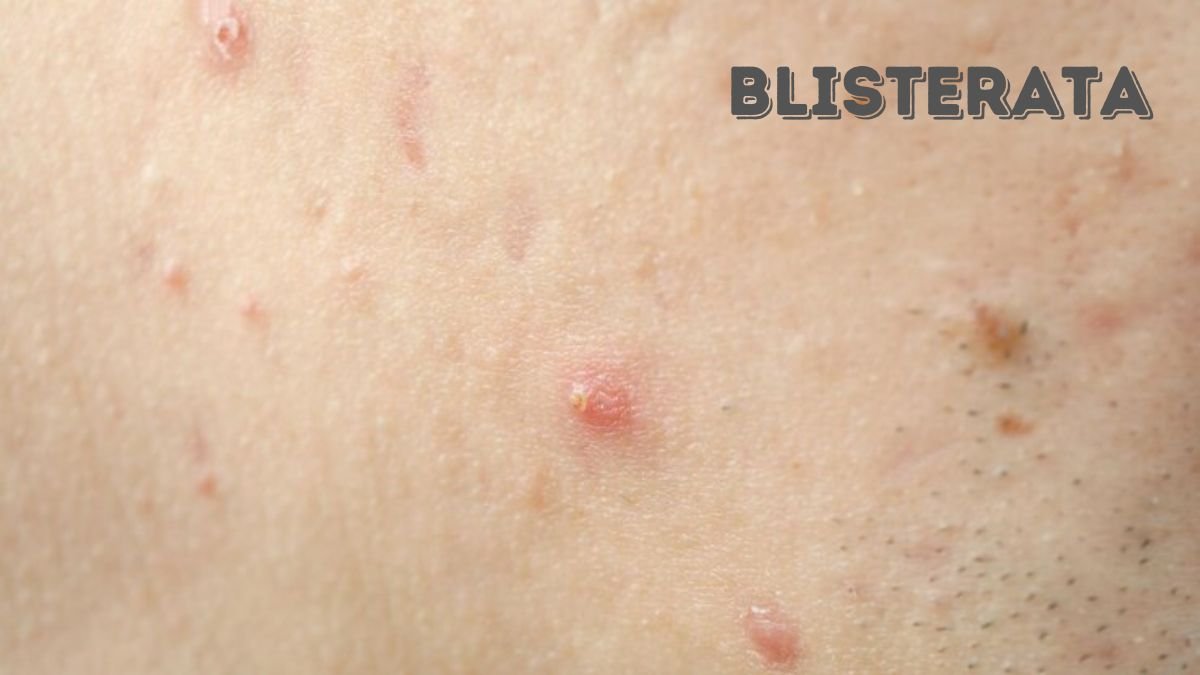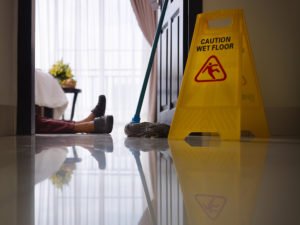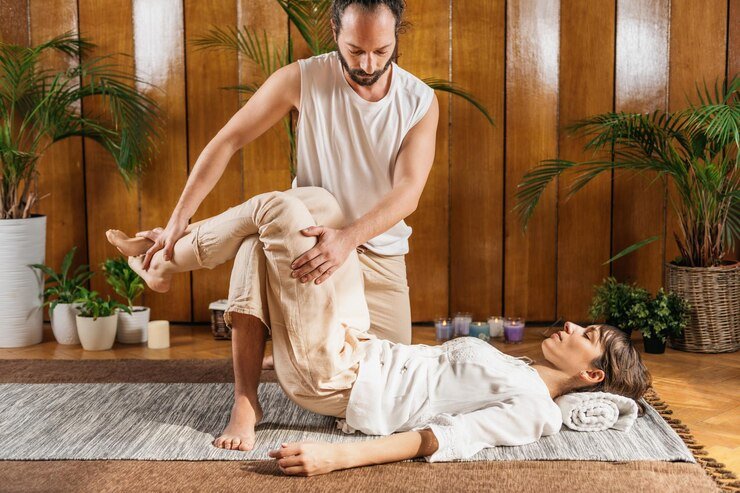Health & Fitness
Blisterata: Navigating the Landscape of Skin Afflictions

The skin is an extraordinary organ because it protects us from the outside world. But there are a lot of things that might harm our skin and diminish its health and beauty. In this post, we will examine Blisterata, a skin condition, in detail, including its symptoms, causes, ways to avoid getting it, and treatments that have been effective in the past.
What is Blisterata?
Blisterata is a dermatological condition characterized by the formation of blisters on the skin’s surface. These blisters may vary in size and can be caused by different factors, making it crucial to understand the condition to effectively manage and treat it.
Common Causes and Symptoms
Blisterata can be triggered by a range of factors, including allergies, infections, or underlying health issues. The symptoms often include itching, redness, and the development of fluid-filled blisters on the affected areas.
Types of Blisterata
Blisterata can manifest in various forms, each differing in severity and impact on an individual’s daily life. Understanding the classification and identification of these types is essential for effective management.
Classification Based on Severity
Blisterata can be categorized into mild, moderate, and severe forms, with each requiring a tailored approach to treatment. Identifying the severity helps individuals and healthcare professionals determine the most suitable interventions.
Differentiation and Identification
Distinguishing Blisterata from other skin conditions is crucial for accurate diagnosis and treatment. In this section, we will explore how to differentiate Blisterata from similar skin afflictions.
Prevention Strategies
Preventing Blisterata involves adopting certain lifestyle changes and skincare practices. Simple adjustments to daily routines can significantly reduce the risk of developing this skin condition.
Lifestyle Changes for Avoiding Blisterata
From dietary considerations to environmental factors, small changes in lifestyle can make a big difference. This section will provide practical tips for minimizing the risk of Blisterata.
Skincare Routines and Practices
A consistent skincare routine is fundamental in preventing skin afflictions. We’ll discuss effective practices and recommended products to maintain healthy and resilient skin.
Treatment Options
In cases where Blisterata has already developed, various treatment options are available. This section will explore both over-the-counter remedies and medical interventions prescribed by healthcare professionals.
Over-the-Counter Remedies
Mild cases of Blisterata can often be managed with topical creams, ointments, and antihistamines available without a prescription. We’ll provide an overview of these remedies and their application.
Medical Interventions and Prescriptions
For more severe cases, medical interventions may be necessary. Dermatologists can prescribe medications or recommend procedures to alleviate symptoms and promote healing.
Impact on Daily Life
Living with Blisterata can have a significant impact on an individual’s daily life, both physically and emotionally. Understanding these effects is crucial for developing coping mechanisms and seeking appropriate support.
How Blisterata Affects Individuals
From discomfort to potential limitations in daily activities, we’ll discuss the real-life implications of living with Blisterata.
Psychological Aspects and Coping Mechanisms
Addressing the psychological impact of skin afflictions is essential. This section will explore coping strategies, emphasizing the importance of mental well-being in the overall management of Blisterata.
Skin Afflictions vs. Blisterata
While Blisterata is a distinct condition, it’s essential to differentiate it from other skin afflictions to ensure accurate diagnosis and treatment.
Distinguishing Blisterata from Other Skin Conditions
Comparative analysis of symptoms, visual cues, and diagnostic methods will help readers understand the specific characteristics of Blisterata.
Comparative Analysis of Symptoms and Treatments
Highlighting key differences in symptoms and treatments between Blisterata and other skin conditions, we aim to provide clarity for those navigating the complexities of dermatological issues.
Myths and Facts about Skin Afflictions
Misinformation can contribute to confusion and anxiety surrounding skin conditions. In this section, we’ll debunk common myths, providing accurate information to empower readers.
Debunking Common Misconceptions
From misconceptions about causes to unfounded beliefs about contagiousness, we’ll address prevalent myths related to skin afflictions, including Blisterata.
Promoting Accurate Information
Educating readers on the true nature of skin conditions fosters understanding and encourages proactive healthcare practices. We’ll provide evidence-based information to dispel myths and promote accurate knowledge.
Recent Advancements in Blisterata Research
Scientific research continues to advance our understanding of dermatological conditions. This section will highlight recent breakthroughs in Bliste’rata research and potential future developments.
Scientific Breakthroughs and Discoveries
From innovative treatments to insights into the genetic factors influencing Blisterata, we’ll explore recent advancements that offer hope for improved outcomes.
Potential Future Developments
The evolving landscape of dermatology holds promise for new treatments and preventive measures. We’ll discuss potential future developments in Bliste’rata research and their implications.
Testimonials and Personal Experiences
Real-life stories provide valuable insights into dealing with Blisterata. This section will share testimonials and personal experiences, offering a human perspective on managing and overcoming this skin condition.
Real-Life Stories of Dealing with Blisterata
Individuals who have faced and conquered Bliste’rata will share their journeys, providing inspiration and practical tips for others going through similar experiences.
Lessons Learned and Advice from Those Who Have Overcome It
Reflecting on challenges and triumphs, those who have overcome Blisterata will offer advice for navigating the ups and downs of managing this skin condition.
Incorporating Natural Remedies
In addition to conventional treatments, many individuals explore natural remedies for managing Blisterata. This section will delve into holistic approaches and herbal treatments.
Holistic Approaches to Managing Blisterata
From dietary recommendations to alternative therapies, we’ll explore holistic approaches that may complement conventional treatments for Bliste’rata.
Herbal and Alternative Treatments
Examining the potential benefits and considerations of herbal remedies, readers will gain insights into incorporating alternative treatments into their Blisterata management plans.
Maintaining Healthy Skin
Preventing skin afflictions goes beyond addressing specific conditions. This section will provide general skincare tips and practices for maintaining healthy, resilient skin.
General Skincare Tips and Practices
Practical advice on cleansing, moisturizing, and protecting the skin will be shared, emphasizing the importance of consistent and comprehensive skincare.
Long-Term Strategies for Preventing Skin Afflictions
Building on short-term prevention measures, readers will discover long-term strategies for reducing the risk of various skin conditions, including Bliste’rata.
Consulting a Dermatologist
While self-care is crucial, consulting a dermatologist is essential for accurate diagnosis and personalized treatment plans.
Importance of Professional Guidance
Highlighting the expertise of dermatologists, we’ll discuss when and why individuals should seek professional help for their skin concerns.
When and Why to Seek Professional Help
Clear guidelines on when individuals should consult a dermatologist for Bliste’rata or other skin issues will be outlined, promoting proactive healthcare practices.
Blisterata and Different Age Groups
Understanding how Blisterata affects different age groups allows for tailored prevention and treatment approaches.
How It Affects Children, Adults, and the Elderly Differently
Examining age-specific considerations, this section will shed light on the unique challenges and considerations for managing Bliste’rata in children, adults, and the elderly.
Tailoring Prevention and Treatment Approaches Based on Age
Providing actionable advice for different age groups ensures that readers can implement age-appropriate strategies for preventing and managing Blisterata.
Conclusion
A comprehensive and well-informed strategy is necessary for navigating the terrain of skin ailments, particularly Blisterata. People can actively work towards healthy skin by learning about the reasons, ways to prevent it, and treatments available.
FAQs (Frequently Asked Questions)
Is Blisterata contagious?
No, Bliste’rata is not contagious. It is often caused by internal factors and does not spread through contact.
Can I use natural remedies exclusively for treating Bliste’rata?
While natural remedies may complement conventional treatments, it’s advisable to consult a dermatologist for a comprehensive treatment plan.
Are there specific foods to avoid if I have Bliste’rata?
Certain individuals may find that avoiding specific foods helps manage their condition. However, personalized dietary advice should be sought from a healthcare professional.
How long does it take to see improvements with medical interventions for Blisterata?
The timeline for improvement varies based on the severity of the condition and individual response to treatments. Consult your dermatologist for personalized expectations.
Can children develop Bliste’rata, and if so, how is it different from adult cases?
Yes, children can develop Bliste’rata. The presentation and management may differ, and consulting a pediatric dermatologist is recommended.
Health & Fitness
Injured in Des Moines Check this ultimate guide for seeking legal help

Hundreds of accidents are reported in Des Moines every year. From car and motorcycle accidents to dog bites and slip & fall mishaps, people often suffer consequences in incidents because of someone else. Iowa personal injury lawyers allow you to recover a settlement by filing a claim, but navigating the legal maze is no easy task. You need to find an attorney who can fight for you to get the maximum settlement. You can consider meeting the attorneys of The Baer Law Office for a FREE case evaluation. For your help, here is a guide that will help you tide through the process.
Start your search
How do you find reliable injury lawyers in the city? Your best bet is to talk to friends and family members or anyone who has worked with an attorney or has filed a claim. Recommendations can give you a head start. If that’s not an option, there are ready online directories that can help. You can also find third-party websites where there are lists of attorneys practicing in Des Moines.
Make a questionnaire
Most law firms in Des Moines won’t demand a fee when you go for the first meeting. You should use the time efficiently to interview the potential attorneys. As a client, make a questionnaire, which should involve probing the lawyer’s work. Ask questions like – How many years have you been practicing personal injury law in Iowa? What are some of your highest settlements and landmark wins? What can you tell me about your experience of working on similar cases? There is no harm in discussing these details.
Be ready for the tough facts
Numerous variables can affect your compensation. For instance, if you want to file a dog bite-related claim against your neighbor, but they say you were trying to trespass, the outcome could be drastically different. Ask the attorney about the factors that need attention. Your lawyer should not sugarcoat details and set realistic expectations.
Look for the positive traits
What are the things that differentiate a competent lawyer from an average one? The first one is the response. If an attorney doesn’t make you wait for days to get a meeting, you know they are willing to help. The next thing is communication. A credible lawyer takes time to listen to the client’s story, educate them on the Iowa laws, and explain how things are likely to move. Finally, you expect an attorney to be available when necessary.
Ask about strategy
If an injury lawyer has handled numerous cases in Des Moines, they probably have an idea of how to approach your claim. Ask the attorney what they plan to do next, if they need to hire expert witnesses or other professionals, and whether the case is likely to go to court.
Enquire about the fees and expenses
Personal injury lawyers are interested in what you recover, and instead of the standard hourly rate, they work on contingency. That essentially means that the attorney doesn’t demand an upfront fee but gets a fixed share of your settlement. Multiple things can decide the contingency percentage, but on average, it doesn’t exceed 50%. It would help if you also asked the attorney whether you have to pay for anything. If you don’t have the financial wherewithal to cover the extra expenses, they can help you.
Summing up
Finally, take your attorney’s advice seriously. If an injury lawyer decides to work on your case, they may ask you to follow a few dos and don’ts, which you must adhere to. Your lawyer will handle everything else, including negotiations, paperwork, and deadlines. Hire an attorney immediately after you are hurt.
Health & Fitness
The Transformative Power of Massage Therapy: A Gateway to Holistic Health

In a world where stress and physical ailments are increasingly prevalent, massage therapy stands out as a timeless remedy offering profound relief and rejuvenation. This ancient practice, rich in history and diverse techniques, provides a holistic approach to enhancing both physical and mental well-being. This article explores the comprehensive benefits of 스웨디시 therapy and its crucial role in modern wellness.
The Ancient Origins of Massage Therapy
Massage therapy has a rich history dating back thousands of years, with its origins in ancient civilizations like China, Egypt, India, and Greece. In ancient China, massage was an integral part of traditional medicine, practiced as early as 2700 BCE. Similarly, Ayurvedic medicine in India emphasized the therapeutic benefits of massage for balancing the body’s energies. These time-honored practices have evolved, influencing contemporary massage techniques that cater to a variety of health needs.
Exploring Different Types of Massage Therapy
Massage therapy encompasses a wide range of techniques, each tailored to address specific health issues and preferences. Some of the most popular types include:
- Swedish Massage: Known for its gentle, flowing strokes, Swedish massage is ideal for relaxation and improving blood circulation.
- Deep Tissue Massage: This technique targets the deeper layers of muscle and connective tissue, providing relief from chronic pain and muscle tension.
- Sports Massage: Designed for athletes, sports massage enhances performance, prevents injuries, and speeds up recovery.
- Thai Massage: Combining acupressure, stretching, and compression, Thai massage promotes flexibility and energy flow.
- Hot Stone Massage: Using heated stones, this technique enhances muscle relaxation and blood flow, offering a deeply soothing experience.
The Holistic Benefits of Massage Therapy
Massage therapy offers a myriad of benefits that contribute to overall health and well-being. Here are some key advantages:
- Stress Reduction: Regular massage sessions help lower cortisol levels and increase the production of serotonin and dopamine, leading to reduced stress and enhanced mood.
- Pain Management: Techniques like deep tissue and trigger point massage are particularly effective in alleviating chronic pain conditions such as back pain, arthritis, and migraines.
- Improved Circulation: Massage stimulates blood flow, which helps deliver oxygen and nutrients to muscles and tissues, promoting faster recovery and healing.
- Enhanced Flexibility and Mobility: Regular massage improves joint flexibility and muscle elasticity, reducing the risk of injuries and enhancing physical performance.
- Boosted Immune System: Studies suggest that massage can enhance immune function by increasing lymphatic circulation and reducing stress hormones.
Integrating Massage Therapy into Your Wellness Routine
Incorporating massage therapy into your regular health regimen can significantly improve your quality of life. Here are some tips to maximize the benefits:
- Consistency: Regular massage sessions, whether weekly, bi-weekly, or monthly, can provide cumulative benefits and enhance overall well-being.
- Clear Communication: Discuss your health goals and any specific areas of concern with your massage therapist to ensure a personalized and effective treatment plan.
- Hydration: Drinking plenty of water before and after your massage helps flush out toxins and keeps your body hydrated.
- Complementary Practices: Combine massage therapy with other wellness activities such as yoga, meditation, and a balanced diet for optimal health benefits.
Conclusion
Massage therapy is a timeless practice that offers a holistic approach to health and wellness. Its extensive benefits, rooted in ancient traditions, are highly relevant in today’s fast-paced world. Whether seeking relief from chronic pain, reducing stress, or simply indulging in self-care, 스웨디시 therapy provides a comprehensive solution for enhancing overall well-being. Embrace the transformative power of massage therapy and make it a regular part of your journey to a healthier, more
Health & Fitness
Navigating Careers in Healthcare: Opportunities and Challenges

Key Takeaways
• Healthcare careers offer diverse opportunities but come with their own set of challenges.
• Understanding the evolving landscape of healthcare can help job seekers make informed decisions.
• Networking and staying updated with industry trends are essential for career growth.
Healthcare providers offer diverse opportunities, from direct patient care roles like doctors and nurses to administrative and support positions. The field is known for its job stability, competitive salaries, and the personal fulfillment from helping others. However, healthcare professionals often face challenges such as long hours, high-stress environments, and the need for continuous education to keep up with medical advancements. Navigating a healthcare career requires dedication, resilience, and a commitment to lifelong learning. Networking, mentorship, and professional development are essential for career progression. Despite the challenges, a healthcare career can be gratifying, offering personal and professional growth.
The Diverse Landscape of Healthcare Careers
Healthcare is a vast field with many career options ranging from clinical roles like doctors and nurses to administrative positions and healthcare IT. Each function offers professional and personal growth opportunities and has varying skill requirements. For instance, those interested in travel nurse jobs in California have numerous opportunities, given the current demand for healthcare professionals in that region. The market is underpinned by the dynamic nature of healthcare needs and the substantial population in states like California. The need for healthcare professionals is expected to grow steadily over the next ten years, according to the Bureau of Labor Statistics projections, offering a wide range of career opportunities. This growth is driven by factors such as an aging population, chronic disease prevalence, and advances in medical technology.
Essential Skills for Success in Healthcare
Succeeding in the healthcare sector requires a combination of hard and soft skills. The most important things are critical thinking, empathy, and effective communication. Healthcare professionals must navigate complex patient care scenarios effectively and often make critical decisions under pressure. Additionally, being adept in technological tools is becoming increasingly important, given the trend towards digitalization in healthcare. For example, understanding electronic health records (EHRs) and telehealth platforms can give job seekers a competitive edge. Healthcare practitioners must be lifelong learners who constantly update their knowledge and abilities to provide the best care possible due to the constant improvements in healthcare technology.
Challenges Faced by Healthcare Professionals
Despite the rewarding nature of healthcare careers, professionals often face significant challenges. Long hours and high-stress environments are commonplace, particularly in emergency and intensive care settings. The emotional toll of patient outcomes and the job’s physical demands require robust coping strategies and support systems. Furthermore, healthcare professionals need continuous education and training to keep up with the rapidly evolving medical fields. The constant need for upskilling can add to the workload but is essential for maintaining high standards of patient care. Establishing a work-life balance and seeking mental health support when needed can significantly contribute to long-term career satisfaction. Leveraging resources such as peer support groups and professional counseling can provide much-needed relief and resilience.
Staying Updated with Industry Trends
In an area that is changing quickly, like healthcare, it is imperative to stay current on current trends. Changes in regulations, advancements in medical technology, and emerging health threats all necessitate that healthcare professionals remain proactive learners. Engaging in relevant journals, attending workshops, and connecting with other professionals can offer valuable insights. HealthIT.gov and similar websites provide extensive information on the most recent advancements in healthcare technology. Engaging with these resources can help professionals stay informed about innovations that can improve patient outcomes and streamline healthcare delivery. Staying informed promotes professional development and enhances the standard of patient care.
Networking in the Healthcare Sector
Making progress in the healthcare sector requires building a solid professional network. Networking fosters relationships, leading to career opportunities, collaborations, and mentorship. Attending industry conferences, joining professional associations, and engaging on platforms like LinkedIn can open doors to new possibilities and collaborations. A robust network can also offer support and mentorship, which are invaluable in navigating the complexities of a healthcare career. Seasoned professionals can provide guidance, help navigate career transitions, and offer insights into best practices within the industry. Furthermore, networking can lead to collaborative opportunities in research and clinical practice, advancing both individual careers and the field of healthcare as a whole.
Opportunities in Various Geographic Locations
The geographical location can significantly impact career opportunities in healthcare. Urban areas often offer more job openings and specialized positions due to larger populations and more extensive healthcare facilities. Conversely, rural areas may provide opportunities for broader roles with a more significant community impact. Job seekers should consider these factors when exploring options. In rural settings, healthcare professionals can take on diverse responsibilities, gain a wide range of experience, and establish closer connections with the community. At the same time, urban settings offer more opportunities for specialization and advancement in cutting-edge medical fields.
Conclusion
The healthcare industry presents a dynamic and rewarding career path for individuals with the right skills and knowledge. Success in this field requires understanding its diverse opportunities and challenges, such as patient care, administration, and technological advancements. Staying updated with industry trends is crucial, as the healthcare landscape constantly evolves with new treatments, regulations, and innovations. Professionals can navigate their careers effectively by leveraging networking, which provides support, mentorship, and job opportunities. Continual learning is essential to keep up with medical advancements and enhance skills. Resilience is necessary to manage high-stress environments and long hours. Building a supportive professional network is equally essential for career progression and support. With these strategies, individuals can contribute significantly to healthcare, achieving both personal and professional fulfillment while ensuring long-term success in their careers.
-

 Technology8 months ago
Technology8 months agoExploring Entretech.org: Unveiling the Future
-

 Life Style8 months ago
Life Style8 months agoExploring Myfavouriteplaces.org:// blog: A Journey Begins
-

 Technology8 months ago
Technology8 months agoGPT66X: Revolutionizing Language Models
-

 Eentertainment9 months ago
Eentertainment9 months agoThe Flower of Veneration Chapter 1: A Journey into Intriguing Realms
-

 Games8 months ago
Games8 months agoFour Digits to Memorize: Unlocking the Power of Memory
-

 Technology9 months ago
Technology9 months agoAmazons GPT55X: Revolutionizing Natural Language Processing
-

 Technology8 months ago
Technology8 months agoUnlocking the Potential of TrendzGuruji.me for Awareness
-

 Technology9 months ago
Technology9 months agoUnderstanding “qxefv” and Its Impact on Diverse Industries








